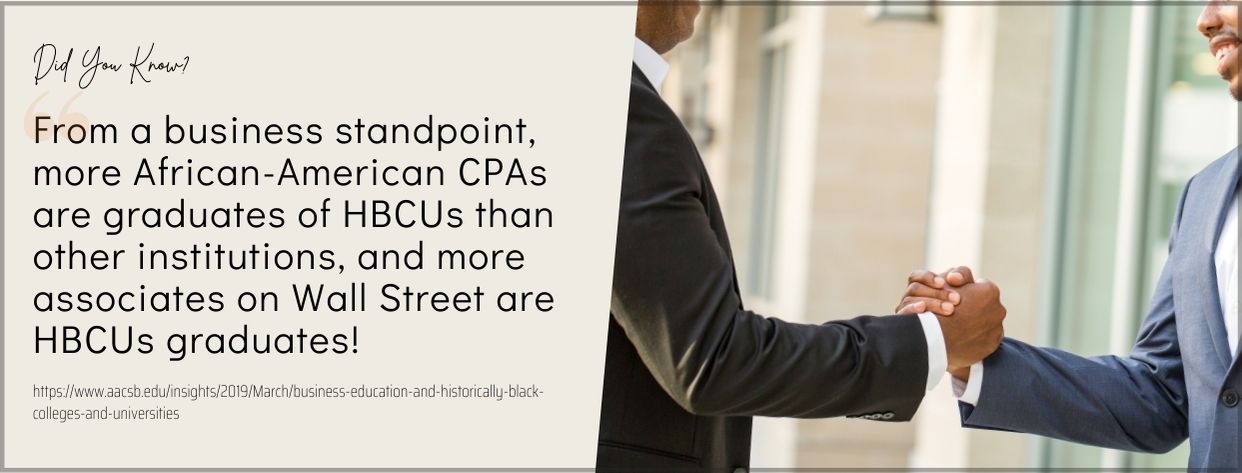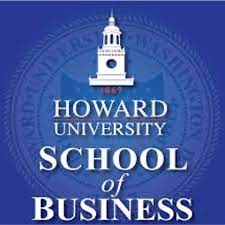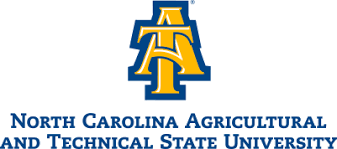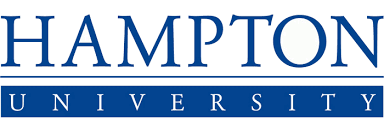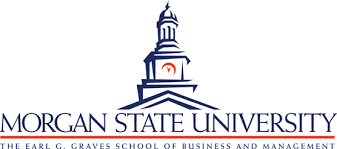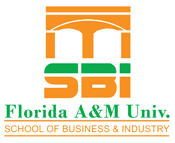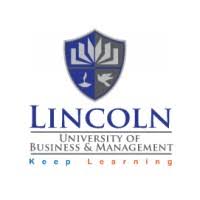Find Your Perfect School
Historically Black Colleges and Universities (HBCUs) were categorized as such because of the country’s sordid history of African-American slavery and the period of segregation, which was apparent before the enactment of the Civil Rights Act in 1964. These schools, founded during the late 1800s, were established to educate African American students, usually with skilled or trade education.
Through the decades, the curriculum of these schools has expanded to include academic didactics. The student demographic has also evolved, with students from other ethnicities enrolling in these schools because of its strong academic rigor comparable to Ivy League schools, the reasonable cost of attendance (which is significantly lower than the Ivies), and the promotion of cultural competence diversity, and its location. Most HBCUs are located in the South, with a few interspersed on the East Coast.
The HBCU Ivy League
Unlike the original Ivy League, the term caught on not as a reference to any athletic association or the “Ancient Eight” of the NCAA Division I. Depending on who you would ask or what source you would be referencing, there is no structured and formal list of the HBCU Ivies, or the “Black Ivies,” which are the elite HBCUs known for academic excellence and social prestige, especially among the African American demographic.
The earliest (although disputable) coinage was in a 1976 article in the Chicago Tribune. In 1984, Jacqueline Fleming authored “Blacks in Colleges,” a book that listed HBCUs belonging to the “Black Ivy League.” The only thing these two sources have in common is that they both came up with seven schools. To this day, there is no agreement between experts, educators, and HBCU heads on which schools comprise the Black Ivies and how many schools should be included in the list.
The list below of the best Black Ivies for business programs is based on a compilation of cited sources that itemized the schools belonging to the list. Amidst the differences, we included the schools that appeared more than once in the various lists.
Ranking Methodology
We have ranked the schools according to the following criteria (in order of value and importance):
- The school must offer an MBA program, whether full-time, part-time, online, or hybrid. Why is this essential? The presence of an MBA program adds value to a business school because of its versatility. It could also be a determinant of student attendance. The National Center for Education Statistics reports that master’s degrees in business are the most conferred master’s degrees since 2010, beating education master’s degrees. And the most popular master’s degree is the MBA.
- The school must have other business degree offerings, whether at the undergraduate or graduate levels. This demonstrates the school’s breadth of business expertise and its confidence to teach the discipline at all levels of post-secondary education.
- A big plus is if the school offers certificate programs or executive education (non-degree certificates).
- Another big plus is if the school offers exposure to entrepreneurial research, development, innovation, and experiential learning.
- The availability of joint degrees or dual degrees adds value to the school and can improve its ranking. This is because it offers exceptionally driven students a practical (albeit expensive) pathway to pursue two degrees within the same time frame, which increases their marketability.
- Tuition fees and availability of scholarships and aid were not used as metrics in this ranking. This is to simplify the methodology. We want to focus this ranking on the strength and variety of the programs offered by the business school or department of each HBCU school in the list. If cost is used as a metric, most students, especially those belonging to minority sectors, will strongly consider the least expensive school without considering its programs. This is likely to happen, especially during a time of public health and economic crisis.
Best HBCU Ivy League Schools for Business
Howard University School of Business
Howard University
Washington, DC.
Howard University was founded in 1866 and was named after its founder, Civil War personality General Oliver Howard. It is the only HBCU with a Carnegie Classification – Research I status. In 1970, Howard University founded the School of Business (HUSB). It began offering an undergraduate business program in 1976, and four years later, it launched its MBA program. All of Howard’s business programs are accredited by the AACSB.
At present, HUSB offers the MBA program in the following formats:
- A full-time, on-campus MBA program that can be completed in two years,
- A part-time MBA program that can be taken in evenings and can be completed in three to four years,
- Online or remote formats for both the full-time MBA and the Executive MBA (EMBA) programs (which can be completed in 18 months),
- Dual degree MBA options with the following advanced degrees:
- Juris Doctor (J.D.)
- Doctor of Medicine (MD.)
- Doctor of Pharmacy (Pharm.D.)
- Master in Social Work (MSW)
- Master in Divinity (M.Div.), and,
- Bridging option for undergraduate Engineering students who would like to jump straight to the MBA program.
HUSB also offers other advanced degrees in Accountancy (MA) and Finance (MF). It also offers executive education or certificate programs on leadership and coaching for corporate executives and ministers. At the undergraduate level, it offers BS programs with seven majors from which students can choose:
- Accounting
- Information Systems
- Finance
- International Business
- Management
- Marketing
- Supply Chain Management
Willie A. Deese College of Business and Economics
North Carolina A&T State University
Greensboro, NC
The North Carolina Agricultural & Technical State University (NCAT) was founded in 1891 to teach trade skills and “classical instruction” to African Americans. In 1899, the university produced its first graduates. Today, NCAT has gained prestige in several areas, such as:
- Being one of the top universities (among all universities, not just HBCUs) to confer STEM degrees to African American students.
- Hailed by many publications as the nation’s top HBCU and the largest in terms of attendance.
- Recognized by the Carnegie Classification as a “high research activity” institution, with more than 40 patents and almost 30 patents pending. It also has 28 research centers with a heavy focus on STEM and entrepreneurial research and development.
NCAT’s Willie A. Deese College of Business and Economics (COBE) houses a wide catalog of undergraduate and graduate business offerings and related disciplines. It offers undergraduate degrees with the following majors:
- Accounting,
- Finance,
- Business Information Technology,
- Management, with an option to concentrate on Management Information Systems,
- Economics, with an option to concentrate on Business or Law,
- Management, with an option to concentrate in Business Administration, Innovation and Entrepreneurship, or International Management,
- Marketing, with an option to concentrate in Sales, and,
- Supply Chain Management.
At the graduate level, it offers two main degrees:
- Master of Accountancy,
- An MBA with four concentration pathways to choose from: General, Accounting, Human Resource Management, and Supply Chain Management. Other universities with MBAs rarely offer these specific pathways.
Students can also take advantage of NCAT’s Center of Excellence for Entrepreneurship and Innovation, one of the school’s 28 research centers. Exposure to this research center can help students find inspiration for their capstone projects or thesis defense. The center demonstrates how business and information technology can seamlessly integrate to create entrepreneurial and innovative opportunities.
Hampton University School of Business
Hampton University
Hampton, VA
Hampton University was established in 1868 and was formerly known as Hampton Normal and Agricultural Institute. It offered vocational education in skills like farming, blacksmithing, carpentry, and other similar skills during its early years.
In 1930, it changed its name to Hampton College, as it expanded its program offerings to include Agriculture, Education, and Business, to name a few. By 1984, as enrollment increased, the school renamed itself to what is known today as Hampton University.
The Hampton University School of Business houses the university’s undergraduate and graduate business programs. It offers undergraduate degrees in:
- Finance,
- Accountancy,
- Economics,
- Entrepreneurship,
- Management, with a concentration in either Human Resources Management or Management Information Systems,
- Marketing, and,
- Business Administration, with an accelerated option to jump straight to the MBA program. If opted, students can earn both the BSBA and the MBA degrees in just five years.
Hampton offers a two-year, on-campus MBA program (for students who have earned a different undergraduate degree or a BSBA degree from another school). A doctoral program in Business Administration is also offered, which culminates in a dissertation defense.
Graves School of Business and Management
Morgan State University
Baltimore, MD
Morgan State University (MSU) is a publicly funded research university with an R2 Carnegie Classification status. Established in 1867, it currently offers 135 degree programs from the baccalaureate level to the doctoral level.
In 1944, MSU opened the Earl E. Graves School of Business and Management (GSBM), which, at present, offers nine undergraduate programs, three master’s degrees, and a doctoral program in various business majors.
At the undergraduate level, it offers the following majors:
- Accounting
- Business Administration
- Finance
- Hospitality Management
- Information Systems
- Human Resource Management
- Marketing
- Services & Supply Chain Management
- Entrepreneurship
At the graduate level, it offers the following master’s and doctoral programs:
- A full-time MBA,
- MS in Project Management,
- MS in Hospitality Management, and,
- Ph.D. in a major of the student’s choice, whether Accounting, Business Administration, Information Sciences and Systems, or other business majors. As part of the doctoral requirement, students must attend the lecture, workshop, and presentation sessions brought together by GSBM’s Center for the Advancement of Research Methods & Analysis (CARMA). Its “Brown Bag” sessions can provide a good training ground for doctoral candidates preparing for their dissertation defenses.
GSBM also encourages financial literacy, especially among women, through its Girls Who Invest program. First and second-year undergrads regardless of major, who are interested in investing, stock markets, and other concepts and strategies in finance will greatly benefit from these sessions.
School of Business and Industry
Florida A&M University
Tallahassee, FL
Florida Agricultural and Mechanical University is a publicly funded institution established in 1887 and carried the name State Normal College for Colored Students. Several decades later, the school saw changes in its name, square footage, and program offerings.
But 1980 was the decade that saw the most changes in FAMU, with the School of Business and Industry (SBI) being one of the colleges to be constructed and launched as part of FAMU’s expansion and growth.
Florida A&M’s SBI offers the following undergraduate programs, namely:
- BS in Business Administration, with an option to major in Facilities Management
- BS in Accounting
- BS or BA in Economics
- BS in Supply Chain Management
At the graduate level, SBI offers the following master’s programs:
- An accelerated MBA program that can be completed in one year and is best suited for business majors (although non-business majors are welcome to apply, but will be required to take pre-requisite courses before commencing the MBA program proper),
- A professional MBA, which is similar to a direct undergraduate-to-MBA 4+1 program, lasting for five years,
- An intensive, seven-semester joint MBA and MS in Supply Chain Management, and,
- And a two-year MS in Supply Chain Management program.
Claflin University School of Business
Claflin University
Orangeburg, SC
Claflin University was established in 1869 and was named – in part – after the then-governor of Massachusetts, William Claflin. In 1879, it conferred its first graduate degree, an honorary, to its pivotal benefactor, the Rev. Dr. Lewis Marion Dunton. The following year, undergraduate degrees were also conferred.
The university has four schools (departments): School of Natural Sciences and Mathematics, School of Humanities and Social Sciences, School of Education, and School of Business. The School of Business offers four undergraduate programs and a lone graduate program – an MBA. The four undergraduate programs offered by Claflin’s School of Business are:
- Business Administration (with Finance or Accounting specialization options)
- Management
- Marketing
- Organizational Management
The MBA program is hosted on-campus and online. The curriculum, which can be completed in less than two years, features courses on staple MBA topics like economics, finance, human resources management, and marketing. But it also features courses on relevant topics like leadership, sustainability, and strategy.
Department of Business and Entrepreneurial Studies
Lincoln University
Philadelphia, PA
Lincoln University was established in 1854 and was formerly known as The Ashmun Institute. But shortly after its establishment, it was re-christened to its present name. It even carried the nickname “Black Princeton” because its founder and pioneer academe were all alumni of the Ivy League school.
Lincoln University’s Department of Business and Entrepreneurial Studies is home to various undergraduate programs under the discipline, such as:
- BS or BA in Accounting
- BS or BA in Finance
- BS or BA in Management
It also offers an accelerated on-campus MBA program through the School of Adult Continuing Education. The program is in a hybrid format and can be taken every Saturday or on weeknights. The program has two start dates every year and can be completed in as little as two years. Students can choose to concentrate on either Finance or Human Resources Management.
Exceptional undergraduate first-year students are encouraged to join Lincoln’s Honors Program, which can sharpen their research, discussion, and thesis defense skills. The requirement to study foreign languages and experiential trips to public offices, both local and abroad, may also be useful as they pursue their business degrees.

